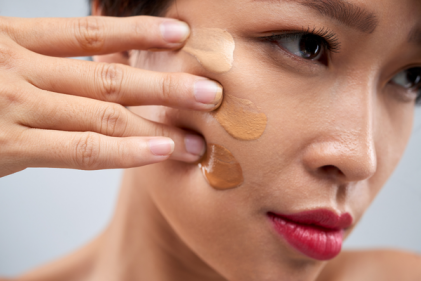 Up to 80% of women with new babies experience the ‘baby blues’. This only lasts about two weeks and is only usually felt during the very early stages of motherhood.
Up to 80% of women with new babies experience the ‘baby blues’. This only lasts about two weeks and is only usually felt during the very early stages of motherhood.
If your emotional vulnerability and depression lasts longer than two weeks, you may be suffering from postpartum or postnatal depression. This clinical depression is severe and affects about 20% of new mothers. There is no definite time for the onset of postpartum depression and it can occur at any stage during the first year of your child's life.
If you're experiecing postnatal depression, the most important thing to remember is that you are not alone.
What is postpartum or postnatal depression?
Postpartum depression can start at any time after pregnancy and it can affect any woman no matter how emotionally strong and prepared she is. Doctors and medical authorities have a long history of misdiagnosing PPD and blaming the symptoms on hormonal changes or feminine moodiness.
Even though the medical community takes this condition more seriously these days, society is slower to change perceptions. A mother with PPD is often made feel inadequate and family members can't grasp how a mother can have negative thoughts about her role as a caregiver for her baby. The concept is frightening to most people.
A more severe condition is postpartum psychosis. This manifests as extreme behaviour on the mother's part, along with possible hallucinations, suicidal thoughts, mania, paranoia and delusional thinking. This condition requires immediate medical intervention and treatment, since harm can come to the mother and to the child.
Symptoms of postnatal depression
Common symptoms of postpartum depression include:
- Insomnia
- Uncontrollable sadness
- Lack of interest in pleasurable activities
- Diminished concentration
- Lack of appetite
- Feelings of anxiety, mood swings and irritability
- Self-imposed isolation from friends and family
- Overwhelming guilt
- Panic attacks
- Self-destructive, negative, or scary thoughts
These symptoms are just a guideline; a trained healthcare worker or doctor can assess you to confirm if you really have PPD.
Some women suffering from PPD doubt their own abilities to look after their child properly, while others are convinced that they will end up hurting their child. It is important that you do not mix up PPD with the inevitable reaction of stress and fatigue during early motherhood, but if you are worried, talk to a healthcare professional.
What causes postpartum depression?
PPD has a number of possible causes and a combination of these is most likely to trigger it. Factors include:
- Hormonal
- Environmental
- Genetic
- Biochemical
- Psychological.
A history of depression and genetics are among the biggest factors in PPD onset, but there are factors that can put you at a higher risk of experiencing PPD, such as:
- An unplanned pregnancy
- An unsupportive spouse
- Experiencing marital difficulties
- Big life change – such as moving – around the time you had your baby
- Complications during labour
- Childhood abuse
- Coming from a dysfunctional family
- Thyroid problems
One group of researchers have found links between the epidural and a reduce chance of developing PPD, but this has not been backed up by further studies.
Treatment for postnatal depression
If you suspect that you have PPD, get yourself diagnosed professionally. There is help available from doctors, healthcare workers and baby clinics. If you feel that you are unable to cope or are a danger to your child, you need to get hold of a professional immediately. Besides getting help from outside sources, there are things you can do to treat your postpartum depression and make it a little easier to deal with.
- Find a positive outlet for your feelings. Share what you are going through by talking to loved ones or by joining a support group.
- Look after yourself. Make sure you get enough sleep, eat regular meals and avoid dwelling on guilty feelings.
- Ask family or friends for help. If someone can help by cooking a meal, doing the washing or looking after the grocery shopping, it can make a big difference to your day.
- Do not neglect your physical appearance. We know it sounds shallow but putting on your normal make-up every day and wearing proper clothing helps prevent you from sinking into deeper depression. Ask your partner to look after your baby, while you indulge in a relaxing bath or long shower.
- Lessen household responsibilities. Delegate some of the chores to your partner or other family members. Do not catch up on tasks while your baby sleeps; instead use this time for personal needs.
- Take the pressure off. Turn your phone off when you are busy with your baby or doing other things around the house. Only have it on when it is convenient for you to talk.
There are also certain foods you can eat that have been found to boost your move and improve mental health. For more ideas on how to manage your illness, visit What are the treatments for postnatal depression.
Will I have to take medication?
Your doctor may recommend an anti-depressant if your depression is severe. If you are breastfeeding, discuss with your doctor how the baby may be affected by the medication. Many doctors believe that the advantages of breastfeeding are greater than the possible risks of the anti-depressants affecting your baby, but it’s important you have all the information. If you baby seems irritable or sleepy after you have taken anti-depressants, voice your concerns to your GP.
You may need to try a few different medications before you find the one that works for you. Not all medications work immediately and you may need to take the medications for several weeks before you feel any improvement.
I’m worried about the effect PPD will have on my relationship
Your husband or partner can play a big role in helping you to recover smoothly. Speak to them about how PPD affects you and how much you need their support. Your husband will also experience stress and fatigue, so have empathy for him too. Arrange for your husband to speak to your doctor or health workers about how PPD affects you and how he can help you cope with it.










